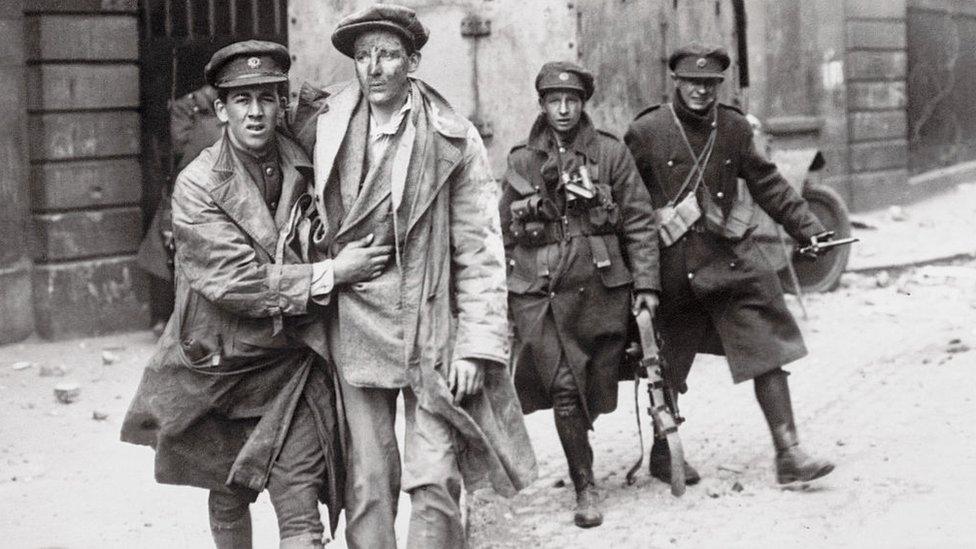NI 100: Ireland marks 100 years since British handover of power
- Published
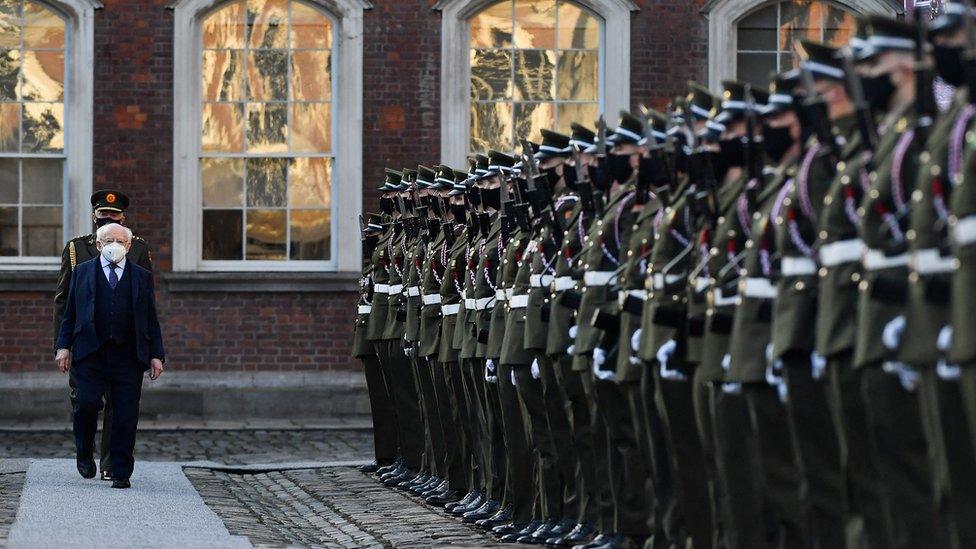
Irish President Michael D Higgins was greeted by a Defence Forces guard of honour as he arrived
A ceremony has been held to mark 100 years since Dublin Castle, the then headquarters of the British in Ireland, was handed over to Irish authorities.
Irish President Michael D Higgins and Taoiseach Micheál Martin attended.
In 1922, the handover took place a week after the Dáil (Irish parliament) voted to ratify the Anglo-Irish Treaty.
The treaty allowed for the creation of an independent Irish Free State within the British Empire and confirmed the partition of the island of Ireland.
Speaking at the event the taoiseach (Irish PM) said: "As we honour the achievements of the revolutionary generation, we do so with pride that the state they helped to create is entering its second century of independent, democratic government."
President Higgins then unveiled a plaque marking the site where Dublin Castle was formally handed over by the representatives of the British government in 1922.
The event was also attended by UK Ambassador in Ireland Paul Johnston, former Irish PMs Bertie Ahern and Enda Kenny and former presidents Mary McAleese and Mary Robinson.
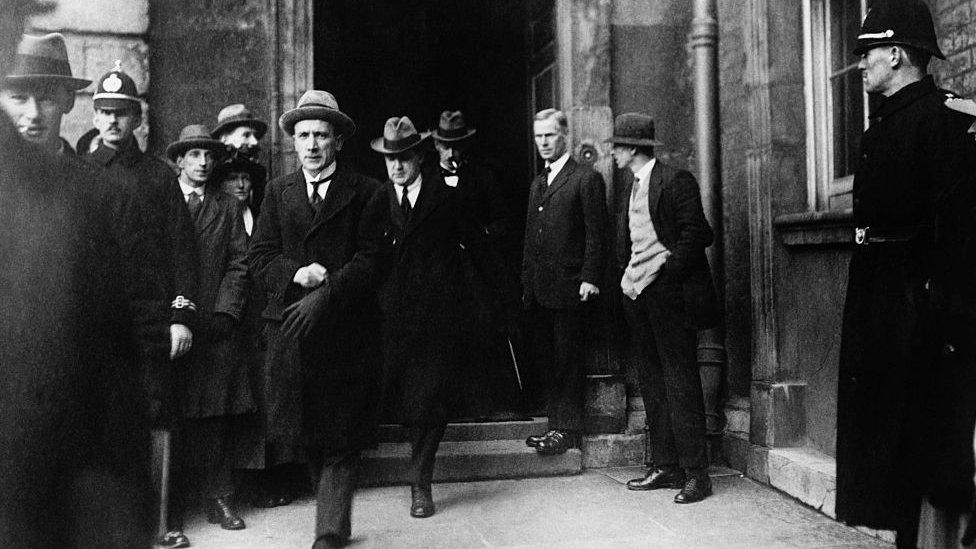
Michael Collins (second in line) arrives at Dublin Castle for the handover of power in 1922
On 6 December 1921, British and Irish delegates signed the Anglo-Irish Treaty in the cabinet room of 10 Downing Street.
The document allowed for the creation of an independent Irish Free State within the British Empire, with King George V as its head of state.
It also confirmed the partition of the island of Ireland and allowed Northern Ireland to remain in existence if its parliament chose.
Northern Ireland was given the option of joining the newly-created state, but the unionist government in Belfast made it clear it had no intention of doing so.
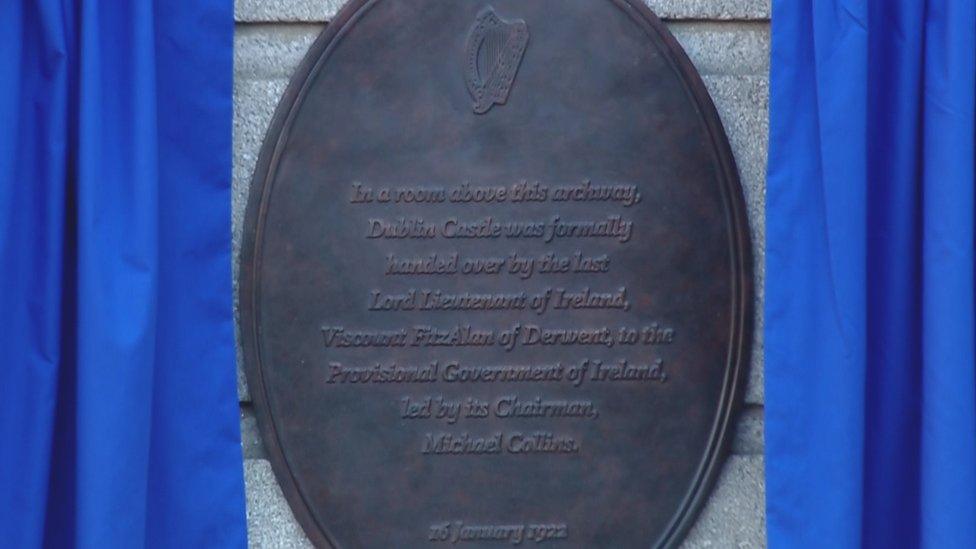
President Higgins unveiled a plaque in the courtyard of Dublin Castle to mark the centenary
On 16 January 1922, the provisional government of the Irish free state took office.
Michael Collins, who held the role of chairman - effectively prime minister, was at the castle for the handover of power.
But the treaty which led to the handover proved highly controversial and ultimately led to civil war in Ireland between those who supported it and those who opposed it, a war the pro-treaty side eventually won.
Michael Collins would be shot and killed in August 1922 by those opposed to the treaty.
Related topics
- Published6 December 2021
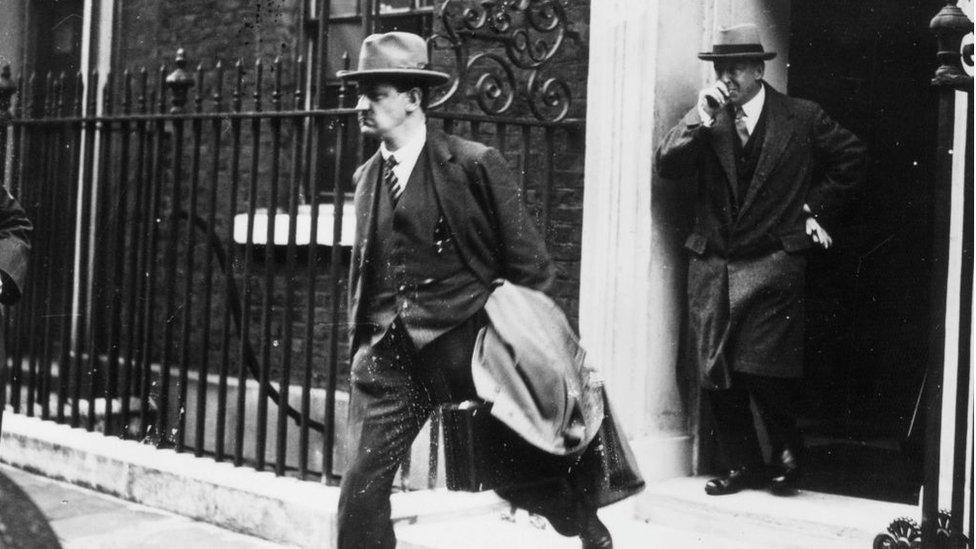
- Published6 December 2021
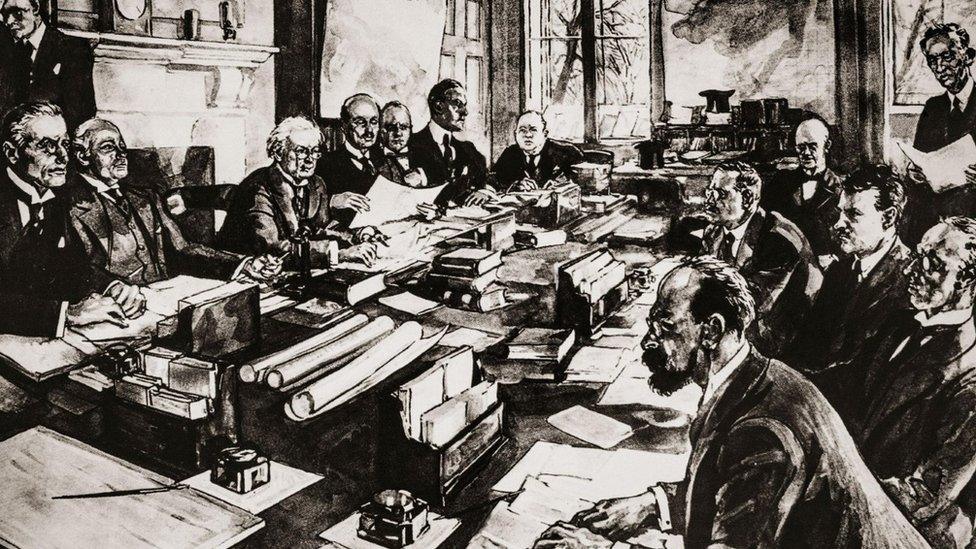
- Published1 January 2022
